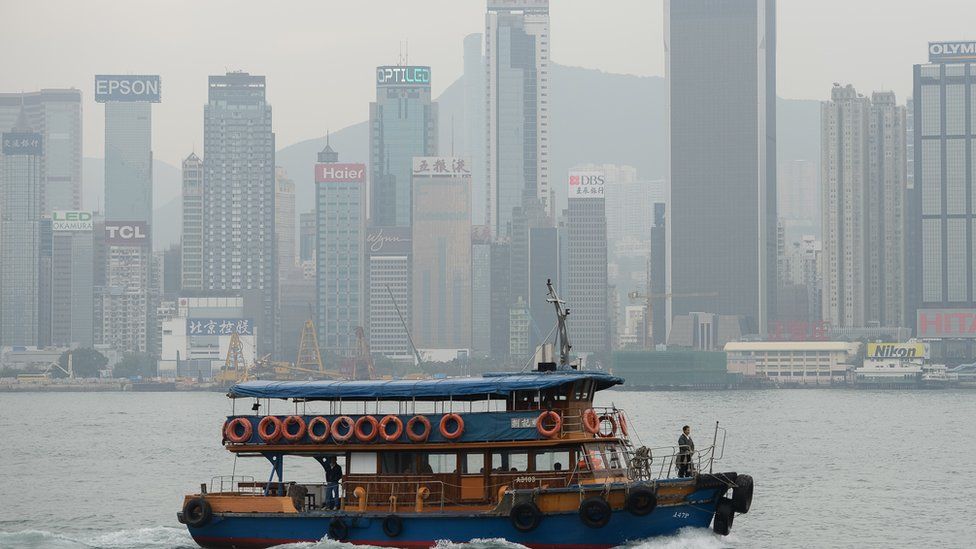Hong Kong and the UK: What's the history between the two?
- Published
- comments

There's a lot in the news at the moment about Hong Kong and the protests happening there.
There are many reasons why the protests are going on - and it's helpful to know about the history of Hong Kong to understand what's happening.
Britain has played a big role in the history of Hong Kong, the two places have been closely linked for a long time.
So, how has Hong Kong's position in the world been, in part, shaped by the UK? Here's everything you need to know.
Where is Hong Kong?
Hong Kong is a region on the south-eastern coast of China.
It juts out into the South China Sea.
Hong Kong's deep harbour makes it valuable for shipping and parts of it are a really rich place.
Lots and lots of people live there, despite it being a relatively small area.
It's divided into three main parts: Hong Kong Island, Kowloon and the New Territories.
Hong Kong as a British colony
Hong Kong was a British colony from 1841 to 1941 and again from 1945 to 1997.
In 1839 in the First Opium War, Britain invaded China and one its first acts was to occupy Hong Kong.
What is a colony?
A colony is a group of people from one country who build a settlement in another territory or land. They claim the new land for the original country, and the original country keeps some control over the colony.
In 1841, China surrendered the island to the British and an agreement called the Treaty of Nanking was signed - it formally ended the First Opium War.
At the end of the Second Opium War, China also surrendered the Kowloon Peninsula to Britain - another part of the island.
Britain's new colony flourished, and in 1898 Britain was given an additional 99 years of rule over Hong Kong under a special convention.
This kept Hong Kong under British rule until 1997.
What happened after that?
Protests have been happening in Hong Kong as people worry about their freedom
As the deadline for the 99-year-lease approached, Britain and China began talks on the future of Hong Kong - the communist government in China wanted all of it to be returned to Chinese rule.
The two sides made an agreement that would see Hong Kong return to China in 1997 under the idea of "one country, two systems".
This basically meant that while Hong Kong would become one country with China, it would enjoy "a high degree of autonomy" for 50 years - which means Hong Kong could have its own laws and rules during this time.
Hong Kong now has its own legal system and borders, and free speech and freedom of the press are protected.
In recent years, China have tried to introduce laws that would give them more control over what people can do in the area.
Many people in Hong Kong see this as China interfering with how they live and the greater freedoms they have compared to people in mainland China.
This has led to the recent wave of protests against Chinese involvement in Hong Kong.
A timeline
Hong Kong has grown rapidly since the 1950s
1842 - China leases Hong Kong island to Britain after the First Opium War
1898 - China leases the New Territories together with 235 islands to Britain for 99 years
1941-45 - Japan occupies Hong Kong during Second World War
1970s - Hong Kong is established as an "Asian Tiger" - one of the region's economic powerhouses - with a thriving economy based on high-technology industries
1997 - Hong Kong is handed back to the Chinese authorities after more than 150 years of British control
2014 - Pro-democracy demonstrators occupy the city centre for weeks in protest at the Chinese government's decision to limit voters' choices in the 2017 Hong Kong leadership election
- Published28 May 2020
- Published3 July 2019
